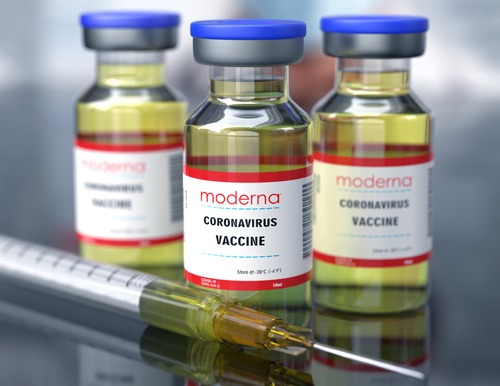
According to new data from clinical trials highlighted by Moderna, Inc. this week, its debut COVID-19 vaccine, mRNA-1273, continues to be highly effective against COVID-19, providing 96 percent efficacy against hospitalization and 87 percent against infection.
The data — from a study at Kaiser Permanente Southern California — came from more than 700,000 trial participants, with the aggressive Delta variant present in 47 percent of cases among vaccinated individuals. A separate cited study conducted by the Centers for Disease Control and Prevention (CDC) of more than 33,300 medical encounters across nine states dubbed the Moderna vaccine more effective than its competitors among a Delta-dominant field, providing 95 percent efficacy against hospitalization and 92 percent efficacy against severe cases.
In a separate, one year follow-up of the Phase 3 COVE study, Moderna also determined that there is a lower risk of breakthrough infection for participants vaccinated at a median of about eight months after their first dose, compared to those vaccinated last year, or a median of about 13 months after their first dose. In essence, that means greater support for the importance of booster shots and hints at waning infection protection with time.
“It is promising to see clinical and real-world evidence adding to the growing body of data on the effectiveness of the Moderna COVID-19 vaccine,” Stéphane Bancel, CEO of Moderna, said. “The increased risk of breakthrough infections in COVE study participants who were vaccinated last year compared to more recently illustrates the impact of waning immunity and supports the need for a booster to maintain high levels of protection. We hope these findings are helpful as health authorities and regulators continue to assess strategies for ending this pandemic.”
Data from the Kaiser study has been placed on a preprint server and submitted for peer review, while interim data from the CDC study was recently published. The COVE follow-up was from the open-label portion of the study, conducted between July 1, 2021 and Aug. 27, 2021, which focused on analyzing the impact of waning immunity amidst the Delta variant surge. Its findings have been submitted as a preprint to medRxiv and will be submitted for peer review.




